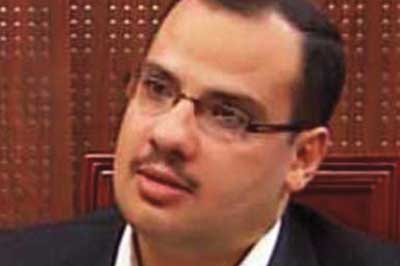The majority of members of the Palestinian National Council who met in Ramallah last week are over 60 or 70 years old. Participants in the March of Return in the Gaza Strip, however, are mostly born in the new millennium, and are not more than 20 years old. This is an irony to pause over.
The gap between the political elite and the street in Palestine is increasing day by day. The political stalemate experienced by Palestinians since the death of President Yasser Arafat has also caused unprecedented frustration, and Palestinian division has caused great paralysis in all aspects of political life and national struggle in Palestine.
Most of the new generation Palestinians who participate in the return marches have not witnessed the first intifada or the second, the Oslo agreement, the emergence of the Palestinian Authority, or the wave of resistance operations by the Fatah and Hamas movements and they are demanding to return to the homes and lands of their forefathers, which the occupation deprived them from and which UN Resolution 194 calls for their return to. This means in short that we are in front of a new generation that rejects the current reality in all its details and insists on returning to their roots.
So we are in front of an old generation of freedom fighting Palestinians who gathered in Ramallah last week and with all due respect to their great importance, they are getting very old. On the other hand, a new generation that is demonstrating at the Gaza Strip’s borders on a weekly basis as part of the Great March of Return is still not represented in the Palestinian National Council, which is supposed to be the supreme parliament of the Palestinian people throughout the land. The meeting of the Palestinian National Council and its modest results, which clearly did not meet the public’s needs, reopens the old file concerning the PLO and the need to reform it.
Read: The PNC meeting was ‘much ado about nothing’
This becomes necessary in light of the current stalemate, which reminds us of the difficult years between 1948 and 1965 when the PLO was a mere décor with no real role to play while some Arab regimes wanted to exploit it. At that point the Fatah movement appeared, upset the balance and changed the equation. Today, a comprehensive reform of the Palestine Liberation Organization (PLO) is required, which will bring back to the fore its presence, existence and entity. The reform process must include but may not be limited to:
First: holding comprehensive elections internally and abroad for the Palestinian National Council in order for it to represent everyone. It is not reasonable for an entire generation of revolutionaries who are now stationed in the Gaza Strip to not be represented in this council, and for their voices not to be heard. It is also unreasonable for entire Palestinian blocs in other countries not to be represented in the council. This shortcoming will ultimately lead to the decline of the council’s importance, role and ability to take action.
#GreatMarchOfReturn
Second: it is necessary for all factions to join the PLO. It is unreasonable for Hamas to be outside the PLO framework, while its representatives in the Legislative Council are necessarily members by law of the National Council. It should not be acceptable for the National Council to convene without the presence of the Hamas and Jihad movements, and without representation of all the factions in it. Also, it is not reasonable for Hamas to accept participation in the Palestinian Authority, which resulted from the Oslo Accords, while not accepting to participate in the PLO, which is the result of decades of Palestinian people’s struggles and bloodshed.
Read: Abbas’s speech was only the latest example of anti-Semitism by Israel’s supporters
Third: reform of the PLO must pass through the gate of reconciliation. All Palestinians realise that internal division is what’s disrupting political life, or at least it’s one of the main reasons. Also, living conditions are exacerbated by this division. Thus reconciliation is a collective national demand, and all possible pressure must be put on the political elite so they unite.
The PLO is one of the historic institutions of the Palestinian people. It is more important than the Palestinian Authority, which was created in 1994. The PLO’s institutions are more important than the institutions of the PA, simply because it is a body of struggle that brings Palestinians together with one goal: to rid them of the occupation. But the PA is a temporary administration for managing Palestinians’ internal affairs. In the past, it was a source of hope for some Palestinians to be a step towards building the state. Therefore, the PLO needs a comprehensive reform and reconstruction process, as we have seen clearly in the recent meetings of the National Council in the city of Ramallah. It is not reasonable or acceptable for the meetings to end with results that are close to nothing, and for major factions to remain outside the council’s framework and not participate in its meetings.
This article first appeared in Arabic in Arabi21 on 8 May 2018
The views expressed in this article belong to the author and do not necessarily reflect the editorial policy of Middle East Monitor.


![Israeli forces fire tear gas at Palestinians protesters at the Gaza and Israel border during the Great March of Return on 4 May 2018 [Mohammad Asad / Middle East Monitor]](https://i0.wp.com/www.middleeastmonitor.com/wp-content/uploads/2018/05/IMG_9070.jpg?fit=1200%2C800&ssl=1)









